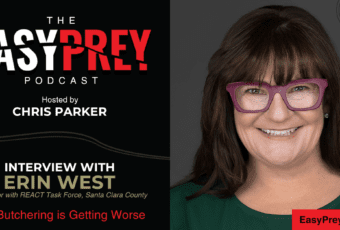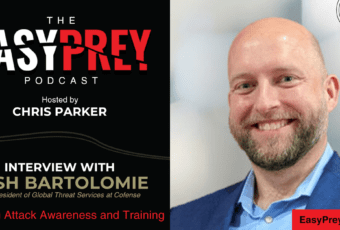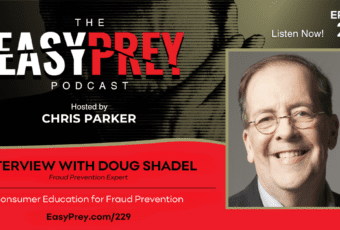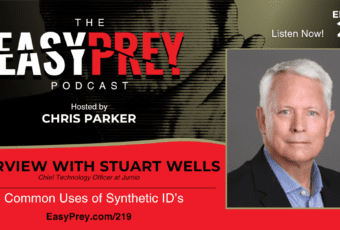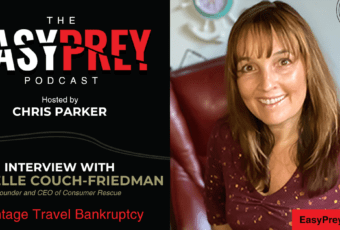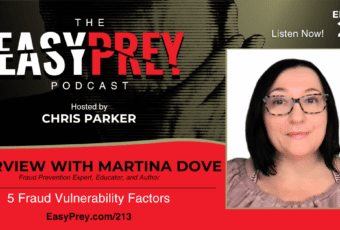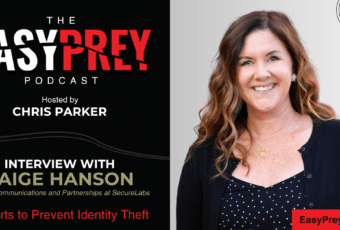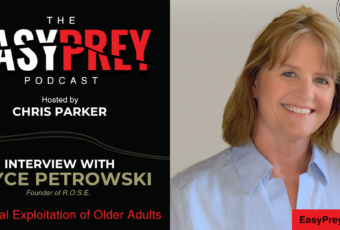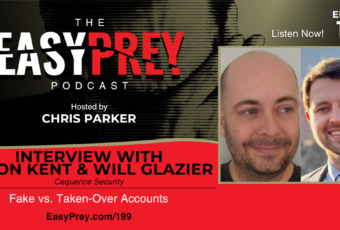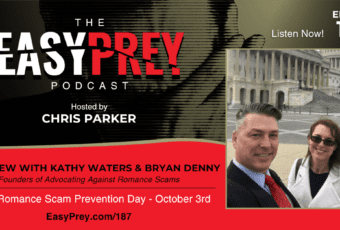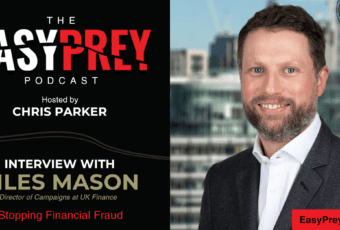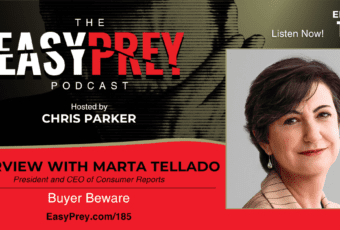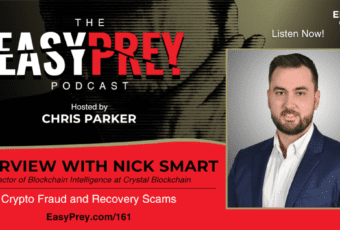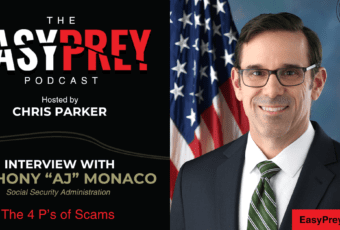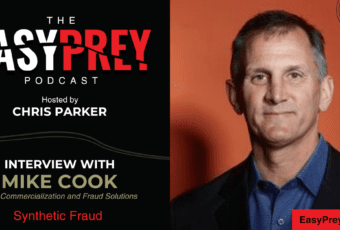When a recruiter contacts you, it’s essential to do your homework, verify their sources, and trust your instincts. If something seems too good to be true, it probably is. While it can be frustrating to be this skeptical, being cautious can protect you and your finances.
Sometimes people only share their stories after they’ve gone through a challenging time. But it’s also important to learn from those in the middle of a scam to learn how people are manipulated and how vulnerable our loved ones can really be.
Sometimes people only share their stories after they’ve gone through a challenging time. But it’s also important to learn from those in the middle of a scam to learn how people are manipulated and how vulnerable our loved ones can really be.
Scammers know employees are busy and that they want to act promptly on requests, but they also understand it takes time to verify the validity of the email. How do we train employees to know what is real and what isn’t?
Some scammers love the challenge of deceiving those they target while others are forced to scam. Doug Shadel has collaborated on numerous educational videos and academic studies and co-authored five books about fraud. He also co-authored the AARP Fraud Frontier 2021 Report. He is currently Managing Director of Fraud Prevention Strategies LLC, a Seattle-based consulting firm.
Scammers have gone from postal mail and faxes to email and phone calls where you never see the person, but now with AI, you can even have a live video call that seems completely real with deep fake technology. It’s no longer safe to just see a person, but there are other things you can do to know if you’re communicating with the individual they claim to be.
Today’s guest is Anna Rowe. Anna is the founder of Catch the Catfish and co-founder of LoveSaid. She is a Subject Matter Expert in Romance Fraud and Victim Support.
There are entire communities set up to fight fraud that use synthetic IDs as well as scammer gangs that are advancing their creative ways to use these documents. This is changing regularly as biometric authentication advances continue.
Imagine booking a vacation only to find out that the company files for bankruptcy a week later. As a consumer, would you know what your rights are? There’s a big difference between travel insurance and travel protection. One can leave you with no way to get your money back.
Today’s guest is Alan Castel. Alan is a Psychology professor at The University of California Los Angeles. He studies learning, memory, fraud, and aging. His work has been featured in The New York Times, Wall Street Journal, and Time Magazine. He recently published a book entitled Better With Age: The Psychology of Successful Aging.
Understanding our cognitive biases can help us realize that we sometimes are too trusting of emails, texts, or calls from someone we perceive to be an authority. Today’s guest is Martina Dove. Martina is a researcher with a fervent passion for fraud prevention. Her expertise focuses on persuasion, scam techniques, and individual characteristics that make people susceptible to fraud. She is passionate about fighting fraud by teaching people how to spot scammer techniques and has recently published a book on fraud psychology.
The tech world is ever-changing and it can be difficult to keep up. As businesses and individuals, it’s important to remember to keep your software up to date and apply patches as they are released. Today’s guest is John Hammond. John is a cybersecurity researcher, educator, and content creator. As part of the Adversary Tactics Teams at Huntress, John spends his days analyzing malware and making hackers earn their access. He is an online YouTube personality showcasing program tutorials, malware analysis, dark web threats, and other cybersecurity content.
Today’s guest is Richard Gilbert. Richard is the Director of the Examination Division with the North Carolina Department of Revenue. He has been with the department for over 25 years. He is a licensed CPA and has received his Bachelor’s of Business Administration from North Carolina Central University.
The fundamentals of scams are the same. However the technology used is increasingly more clever. It is important to know how to spot identity theft and credit card fraud and where to report it if and when it happens. Today’s guest is Paige Hanson. Paige is an authority in consumer and digital safety with nearly 20 years of experience in identity management. As co-founder and Head of Communications and Partnerships at Secure Labs, Paige has dedicated her career to protecting consumers and businesses from identity theft and cyber threats. She is a certified Identity Theft Risk Management Specialist and holds a certificate in Identity Leadership from the University of Texas. Paige also serves as an advisory board member to R.O.S.E. (Resources/Outreach to Safeguard the Elderly).
Today’s guest is Joyce Petrowski. Joyce started her professional career in the public accounting sector and is an accountant and tax preparer. As an avid volunteer and philanthropist, she shares her focus on the non-profit sector and co-founded a non-profit in 2014. Since leaving that non-profit in 2021, she saw a need to educate people, especially the older adult population about the financial scams and how to protect themselves and their hard earned assets. In August 2021, Joyce founded R.O.S.E. (Resources/Outreach to Safeguard the Elderly), with the mission to prevent financial exploitation and frauding older adults through advocacy and education.
Today’s guests are Jason Kent and Will Glazier. Jason is a hacker-in-residence at Cequence Security. He has a diverse information security, networking, and IT background and a generous level of knowledge for most pieces of the IT spectrum including firewalls, security architecture, security controls, and security infrastructure.
Everyone is being targeted by organized crime to separate you from your money. If you’ve been scammed, don’t allow embarrassment to keep you from reporting it. Your story could keep someone else from going through the same thing. Today’s guest is Ryan Kelly. Ryan is a stand-up comedian who hunts scammers with his master’s degree in Homeland Security.
Today’s guests are Kathy Waters and Bryan Denny. Kathy Waters is an expert advocate and an educator on the subject of online romance scams. Kathy is co-founder, along with retired Colonel Bryan Denny, of the non-profit organization Advocating Against Romance Scammers. Both have been working for safer platforms since 2016 with the same goals in mind: justice for victims and educating all online of the cybercrime known to tear people down emotionally, psychologically, and financially. They are now the organizers of World Romance Scam Prevention Day on October 3rd.
Scammers try to take advantage of human politeness. Utilizing critical thinking and slowing down conversations with someone who claims to be an authority like a government agency or bank could be what prevents us from making a financial mistake. Today’s guest is Giles Mason. Giles is the Director of Campaigns at UK Finance. He is responsible for planning and delivering the organization’s communication activities to promote campaigns on behalf of the banking and finance industry.
The burden is on consumers to question the validity of online offers because privacy laws and standards are not yet well regulated. Consumer Reports is fighting to make changes in this arena. Today’s guest is Marta Tellado. Marta is President and CEO of Consumer Reports, the independent non-profit that works side by side with consumers to create a fair and just marketplace. She is a market driven leader with a passion for innovation, public-service, philanthropy, and helping organizations maximize and improve the world.
Scammers have used our systems against us, like shipping, rental cars, and rental homes. They’ve learned how to stay off the radar and, in order to stop money laundering, we need to address fraud one step at a time. Today’s guest is Pierogi. Pierogi protects the innocent and vulnerable from internet scammers through his channel Scammer Payback. He exposes these criminals and helps victims through his technology and cybersecurity knowledge.
Today’s guest is Ronnie Tokazowski. Ronnie has been fighting Nigerian fraud for the last seven years and has collaborated with both law enforcement and the private sector. He runs a mailing list which collaborates with victims in identifying critical pieces of information around how the fraud works as well as working with romance victims themselves.
We are all being targeted by imposters on social media, websites, and dating sites. Once a person has been scammed, your information can be added to a database where criminals can purchase your data and then offer you “recovery assistance” from that scam. Today’s guest is Nick Smart. Nick has 18 years experience as a professional Intelligence and Security Analyst working for government agencies and private companies as well as experience as a compliance officer.
Scamming is a multi-billion dollar industry that is creative and evolving. The National Consumer Protection Week is geared toward education and the National Slam the Scam Day focuses specifically on government imposter scams. Today’s guest is Anthony “AJ” Monaco. AJ currently serves as a special agent in charge of the major case unit at the Social Security Administration Office of Inspector General. His unit investigates complex fraud cases with a particular emphasis on Social Security Administration imposter scams and organized fraud rings. AJ has over 30 years of combined federal law enforcement, Marine officer, and legal experience.
Today’s guest is Abigail Bishop. Abigail is the Head of External Relations for Scam Prevention at Amazon, where she leads the organization’s outreach work to protect customers from falling victim to scams globally.
Millions have been impacted by data breaches. Many of us know how fraudsters work and how they utilize this information. But our parents and children become victims because of their fear or urgency inflicted by the scammers. Today’s guest is Mike Cook. Mike is an entrepreneur with over 30 years of experience working and serving in the financial services, wireless, cable/satellite, and auto financial industries. He has built several data breach applications in compliance, manual verification, and account management solutions.

